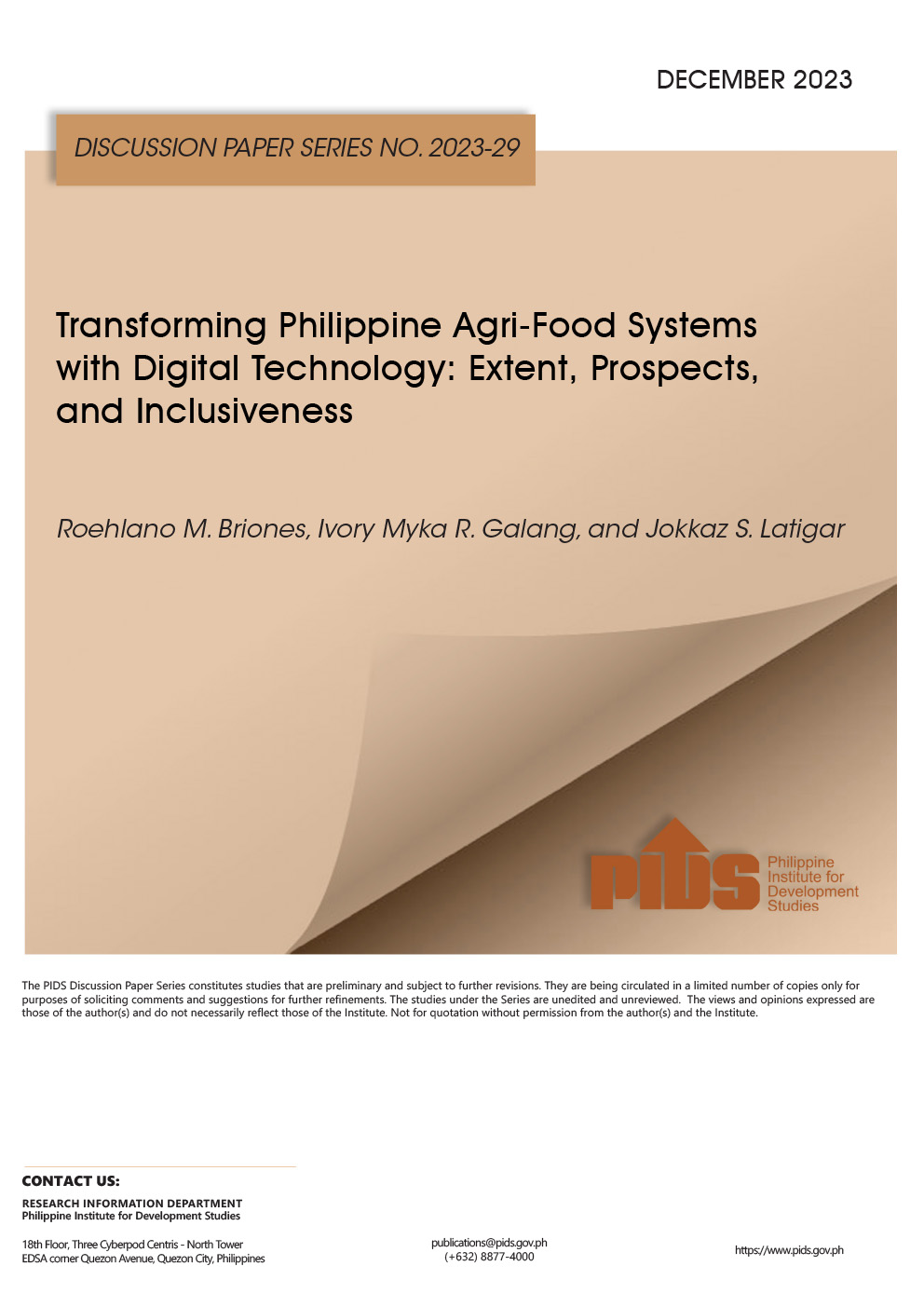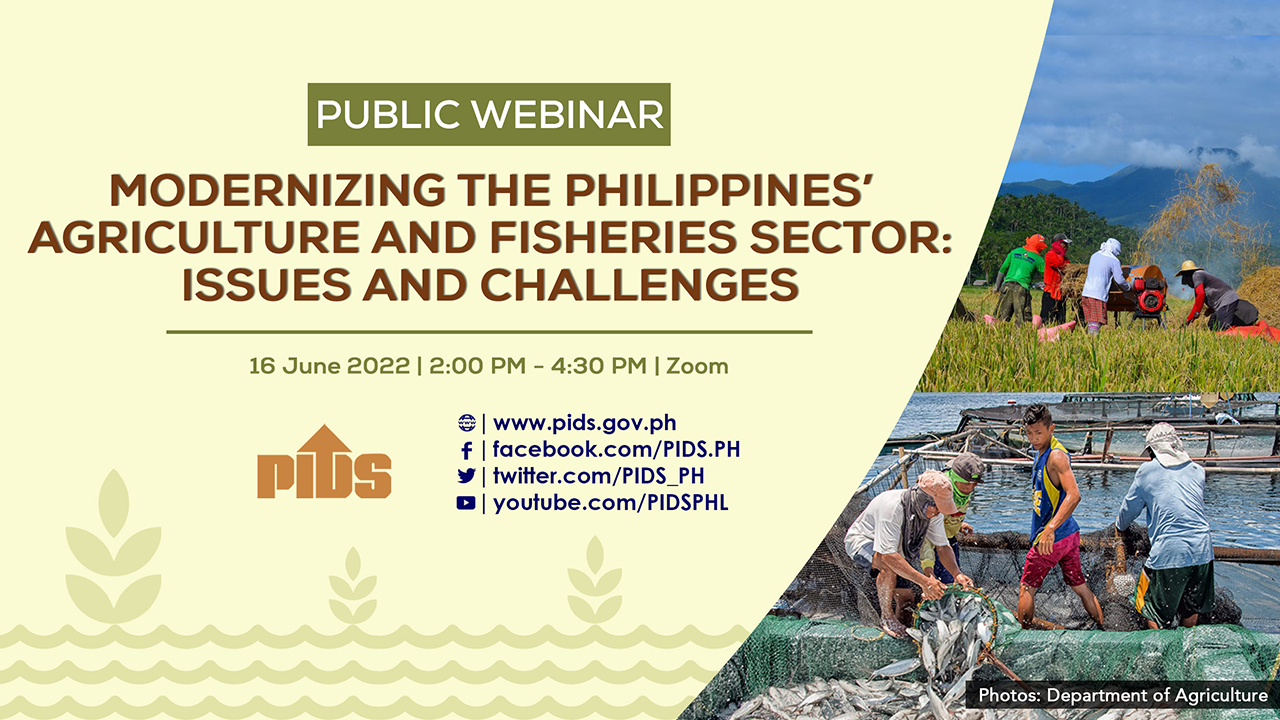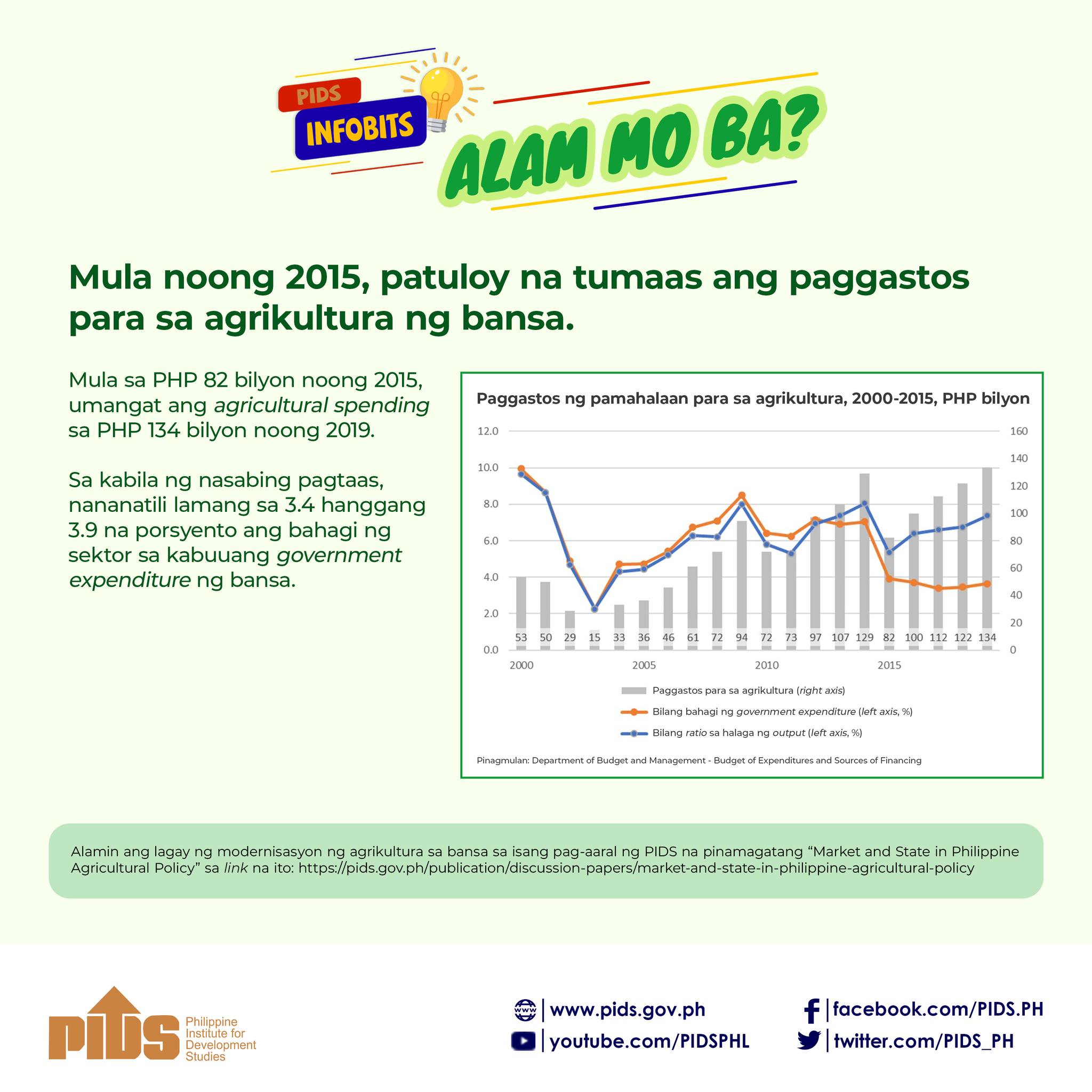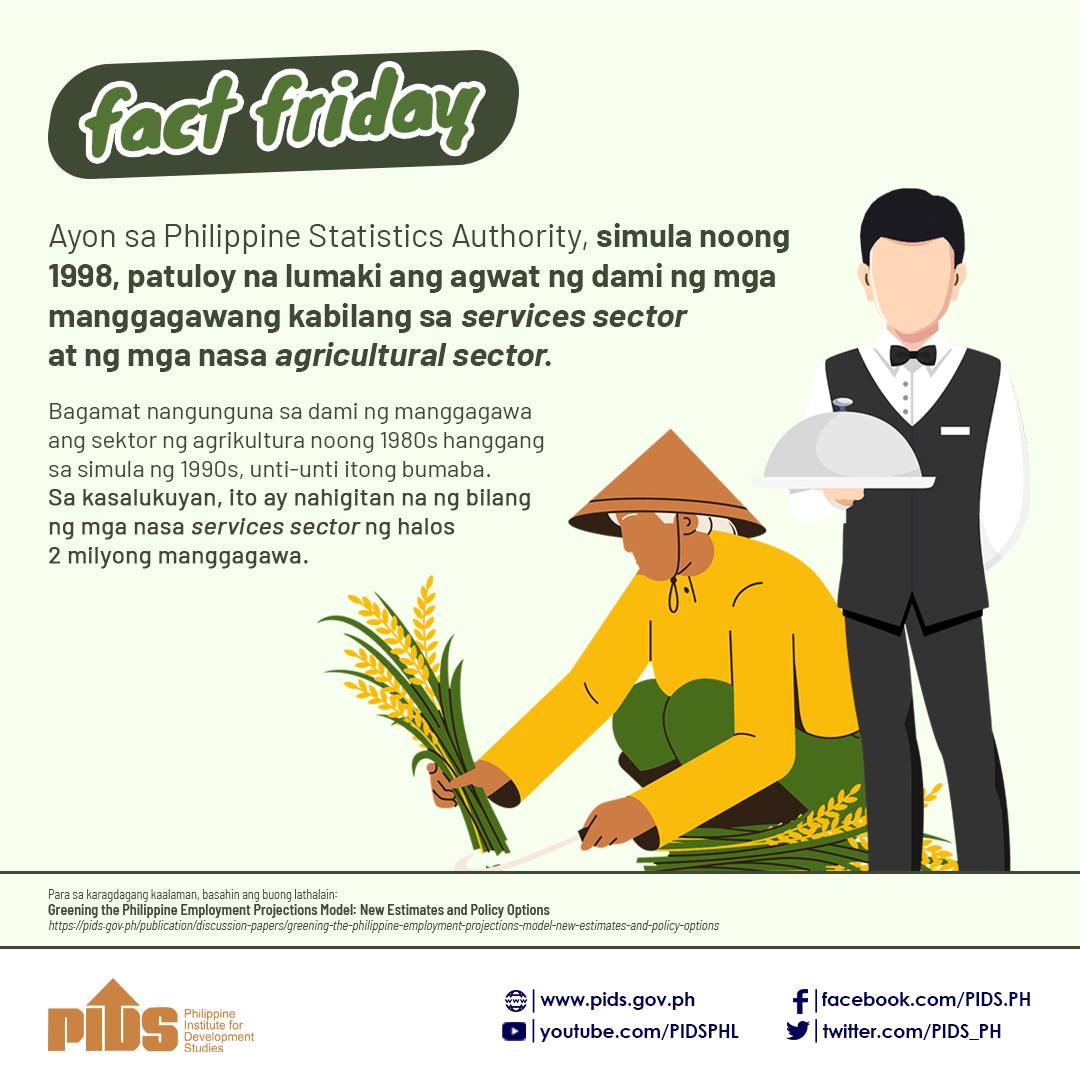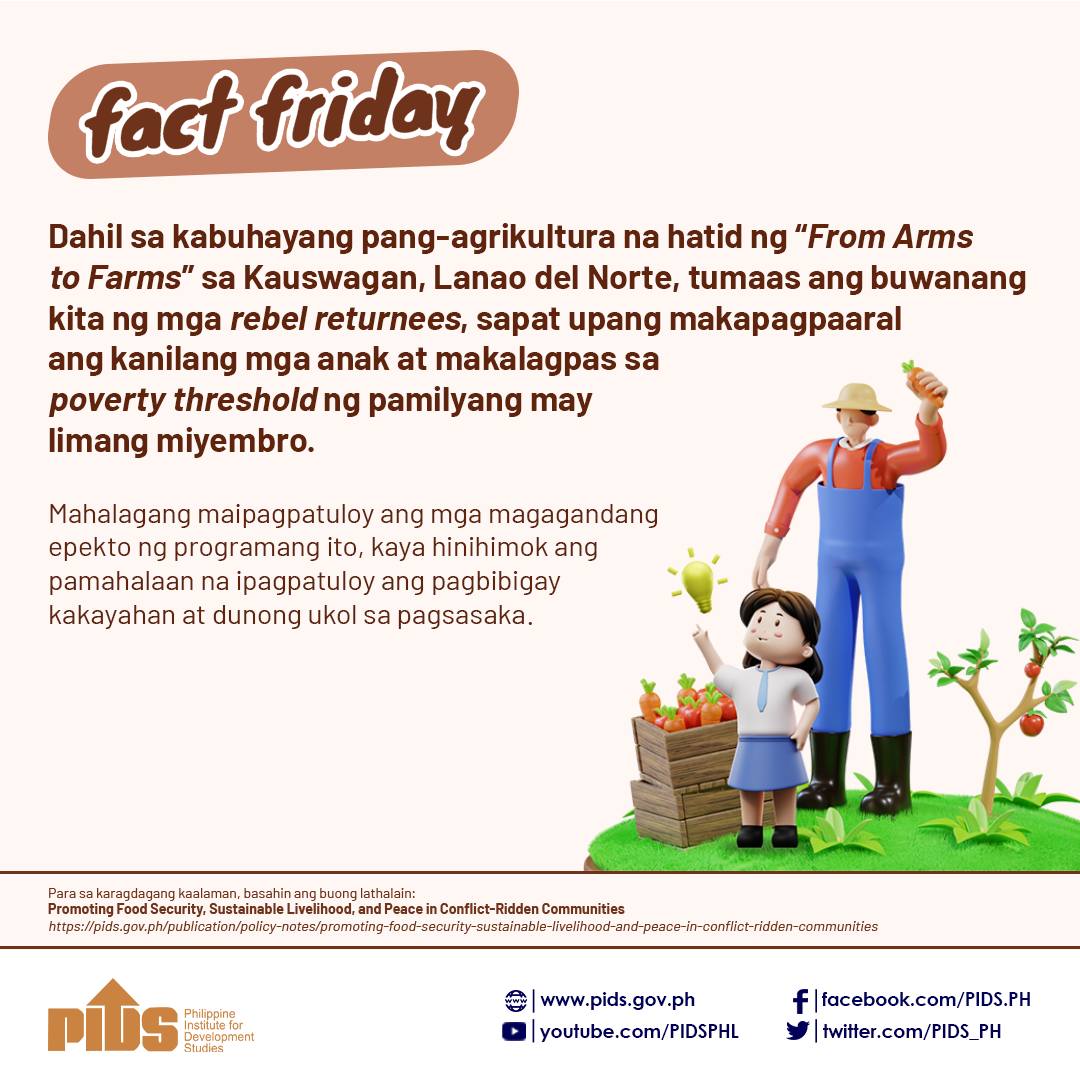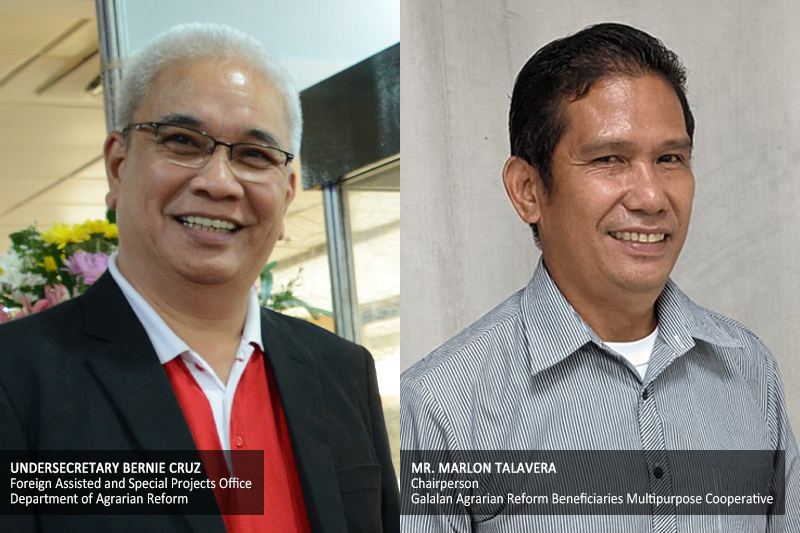
While parcelization of collective certificates of land ownership award (CCLOA) is being pursued, farmers may also undertake other rural development strategies, such as farm consolidation, to boost agricultural productivity.
Department of Agrarian Reform (DAR) Undersecretary for Foreign Assisted and Special Projects Bernie Cruz said this at a webinar recently organized by state think tank Philippine Institute for Development Studies (PIDS). The webinar discussed the benefits and challenges of parcelization and joining agrarian reform beneficiary organizations (ARBOs).
The department implements the World Bank-funded project called Support to Parcelization of Land to Individual Title (SPLIT), which “seeks to give farmer-beneficiaries covered under CCLOA the chance to identify and own their respective shares of farm lots”. This project supports the fast-tracking of land parcelization for individual farmers.
However, Cruz argued that there is a need to consider land consolidation for commercial production.
He explained that most of the lands distributed to farmers were haciendas that yield agricultural produce in large quantities. Hence, the individual distribution of these lands had broken down commercial production.
DAR has taken initiatives to consolidate these lands and help farmers participate in commercial production. These include the Inclusive Partnerships for Agricultural Competitiveness Project and mega-farms. Both projects aim to improve market linkage and the competitiveness of farmers in the value chain. The department also coordinates with institutional partners that could assist in capital buildup, management skills, and research and development.
Meanwhile, Galalan Agrarian Reform Beneficiaries Multipurpose Cooperative chairperson Marlon Talavera, also a discussant at the webinar, underscored the importance of membership in ARBOs for capital buildup.
“Sa kapitalisasyon, doon po nahihirapan ang ating mga magsasaka. Kailangan po ang ARBOs para doon sila lumapit [upang] magkaroon ng access sa mga credit institutions [tulad ng bangko] at [iba pang] financial institutions,” he explained.
Talavera also identified several challenges faced by ARBOs.
One is difficulty in communication that hampers farm operations. “Ang lugar po namin ay walong kilometro mula sa bayan. Wala pong komunikasyon [dahil] walang [cell] tower. Walang cellphone signal kaya kailangan pang umakyat sa isang gulod para [makatanggap] ng text message,” he said.
Another challenge of ARBOs is the lack of members who can lead the organization in the long run. “Tumatanda na po ang mga unang opisyal. Dapat may mga dine-develop tayong second line [of officers],” he said.
They were also hit hard by the COVID-19 pandemic. Talavera said their institutional market partners closed down their businesses, resulting in lower demand for their produce.
“Ang agriculture, base sa aking karanasan, ay dapat may science, business, and art. Science [para sa] patuloy na pagtuklas ng mga bagong teknolohiya at pamamaraan para mapaunlad ang agricultural production, business para ma-sustain ang farm operation, at art [upang maging] kaaya-aya [ang taniman] sa mga makakakita at bisita,” Talavera explained. ###
You may watch the webinar at https://www.facebook.com/126427974049519/videos/196989292199642. For more videos of PIDS events, go to https://www.pids.gov.ph/videos.
Department of Agrarian Reform (DAR) Undersecretary for Foreign Assisted and Special Projects Bernie Cruz said this at a webinar recently organized by state think tank Philippine Institute for Development Studies (PIDS). The webinar discussed the benefits and challenges of parcelization and joining agrarian reform beneficiary organizations (ARBOs).
The department implements the World Bank-funded project called Support to Parcelization of Land to Individual Title (SPLIT), which “seeks to give farmer-beneficiaries covered under CCLOA the chance to identify and own their respective shares of farm lots”. This project supports the fast-tracking of land parcelization for individual farmers.
However, Cruz argued that there is a need to consider land consolidation for commercial production.
He explained that most of the lands distributed to farmers were haciendas that yield agricultural produce in large quantities. Hence, the individual distribution of these lands had broken down commercial production.
DAR has taken initiatives to consolidate these lands and help farmers participate in commercial production. These include the Inclusive Partnerships for Agricultural Competitiveness Project and mega-farms. Both projects aim to improve market linkage and the competitiveness of farmers in the value chain. The department also coordinates with institutional partners that could assist in capital buildup, management skills, and research and development.
Meanwhile, Galalan Agrarian Reform Beneficiaries Multipurpose Cooperative chairperson Marlon Talavera, also a discussant at the webinar, underscored the importance of membership in ARBOs for capital buildup.
“Sa kapitalisasyon, doon po nahihirapan ang ating mga magsasaka. Kailangan po ang ARBOs para doon sila lumapit [upang] magkaroon ng access sa mga credit institutions [tulad ng bangko] at [iba pang] financial institutions,” he explained.
Talavera also identified several challenges faced by ARBOs.
One is difficulty in communication that hampers farm operations. “Ang lugar po namin ay walong kilometro mula sa bayan. Wala pong komunikasyon [dahil] walang [cell] tower. Walang cellphone signal kaya kailangan pang umakyat sa isang gulod para [makatanggap] ng text message,” he said.
Another challenge of ARBOs is the lack of members who can lead the organization in the long run. “Tumatanda na po ang mga unang opisyal. Dapat may mga dine-develop tayong second line [of officers],” he said.
They were also hit hard by the COVID-19 pandemic. Talavera said their institutional market partners closed down their businesses, resulting in lower demand for their produce.
“Ang agriculture, base sa aking karanasan, ay dapat may science, business, and art. Science [para sa] patuloy na pagtuklas ng mga bagong teknolohiya at pamamaraan para mapaunlad ang agricultural production, business para ma-sustain ang farm operation, at art [upang maging] kaaya-aya [ang taniman] sa mga makakakita at bisita,” Talavera explained. ###
You may watch the webinar at https://www.facebook.com/126427974049519/videos/196989292199642. For more videos of PIDS events, go to https://www.pids.gov.ph/videos.

